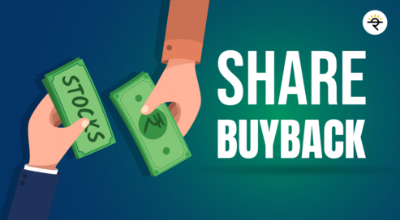What is Buyback of Shares?
As we are on our journey of unravelling the corporate actions, the next stop is a share buyback, in the dynamic world of corporate finance, companies often employ various strategies to enhance shareholder value and optimize their capital structure. One such strategic move that has gained prominence in recent years is the buyback of shares. Share buybacks, also known as share repurchase, involve a company repurchasing its own outstanding shares from the open market. In this blog post, we'll delve into the reasons why companies choose to buy back their shares and explore the benefits it brings to shareholders.
Understanding Share Buybacks
Share buybacks can take different forms, including open-market purchases or tender offers, where shareholders are invited to tender their shares at a specified price. The primary motivation behind share buybacks is often rooted in the desire to deploy excess cash in a manner that maximizes shareholder value. Generally, companies’ buyback shares at a price higher than the current market price.
There are two types of buybacks - tender offer where a company makes an offer to buy back its shares at a particular price (offer price) at which the shareholders can tender, i.e., sell their shares. and open market offer where a company can buy back its shares by actively buying from sellers on the exchange. Companies can choose either of these methods to buy back shares from their shareholders.
In the case of a tender offer, the existing shareholders as on a record date can opt to accept the offer and tender their shares in exchange for cash offered by the company as per the prescribed buyback ratio.
In the case of an open market offer, any Equity shareholder of the company can participate in the buyback offer through their stockbroker till the buyback window is open.
Let's explore some of the key reasons why companies opt for this financial strategy.
- Capital Structure Optimization
Companies often embark on share buybacks to optimize their capital structure. By reducing the number of outstanding shares, a company can increase its earnings per share (EPS) metric. This, in turn, makes each share more valuable, signalling positive financial health to investors and potentially boosting the company's stock price.
- Undervaluation Signal
When a company believes its shares are undervalued in the market, initiating a share buyback can be a way to communicate confidence in its own prospects. By repurchasing shares at what it perceives as a discounted price, the company signals to investors that it believes in the long-term value of its business.
- Return of Excess Cash
Companies occasionally find themselves in possession of excess cash with limited investment opportunities. Instead of letting the cash sit idly, they may choose to return it to shareholders through share buybacks. This approach is particularly appealing when the company believes that reinvesting the cash internally would not generate sufficient returns.
- Tax-Efficient Capital Return
Share buybacks can be a tax-efficient way to return capital to shareholders. While dividends are typically taxed as income, capital gains taxes on stock repurchases are often lower. This makes share buybacks an attractive option for companies aiming to provide returns to shareholders without the tax implications associated with dividends.
Now that we've explored why companies engage in share buybacks, let's turn our attention to the benefits shareholders can derive from this financial strategy.
- Enhanced Earnings per Share (EPS)
As mentioned earlier, one of the primary benefits of share buybacks is the potential enhancement of EPS. By reducing the number of outstanding shares, the company's earnings are distributed among fewer shares, leading to an increase in EPS. This can make the company more attractive to investors and potentially drive up the stock price.
- Share Price Appreciation
When a company buys back its shares, it signals confidence in its future prospects and a belief that the shares are undervalued. This confidence can be contagious, attracting other investors and driving up demand for the stock. As a result, shareholders may witness an appreciation in the value of their shares.
- Return on Investment
For shareholders who choose not to sell their shares during a buyback, the repurchased shares effectively increase their ownership stake in the company. This can be seen as a form of return on investment, as shareholders' ownership in the company becomes more concentrated.
- Tax Efficiency
Shareholders benefit from the tax efficiency of share buybacks, particularly compared to dividends. Capital gains taxes are generally lower than income taxes on dividends, providing shareholders with a more tax-friendly form of capital return.
In the complex world of corporate finance, share buybacks stand out as a strategic tool employed by companies to optimize their capital structure, signal confidence to investors, and return excess cash to shareholders. The benefits of share buybacks extend beyond the financial statements, positively impacting shareholders through enhanced EPS, share price appreciation, increased ownership stakes, and tax efficiency.

However, it's important for investors to approach share buybacks with a critical eye. Not all buybacks are created equal, and shareholders should evaluate the underlying reasons and financial health of the company before celebrating the announcement of a stock repurchase. As with any financial strategy, a well-informed and discerning approach is essential for both companies and shareholders to derive lasting benefits from share buybacks.
To understand more about such interesting concepts along with further interesting examples, check out my course on Basics of Stock Market.
Until next time !!!


